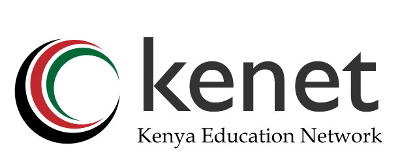You are here
Graduate Intern - Virtual Lab story
- Posted on: 10 February 2023
- By: KENET
KENET’s internship program is in line with KENET’s motto of transforming learning, research and working environment using digital technologies for ICT. Through the Internship Program graduates get unique learning opportunities outside the academic setting to gain practical experience and develop news skills.

The DSAIL team
Yuri Njathi, an Electrical and Electronics Engineering graduate, passionate about Applied Science and Technology interned with KENET and was posted at The Centre for Data Science and Artificial Intelligence (DSAIL) at Dedan Kimathi University of Technology. His research focus areas include applied computer vision and embedded systems which he believes provide an opportunity to optimise resource allocation and utilization processes in preparation for the 4th Industrial revolution.
Using KENET resources Njathi aimed to enhance the productivity of data pipelines at the Centre for Data Science and Artificial Intelligence (DSAIL) which works on real-world problem-solving projects in the fields of ecology and health. DSAIL which is committed to be a leading data science and artificial intelligence centre excelling in research and problem solving is directed by Dr.Ciira wa Maina who conducts bioacoustics, IoT, machine research learning, and data science.
The main focus areas for DSAIL include Environmental Conservation, Health, and Agriculture. The DSAIL Projects under these focus areas include
1. Environmental Conservation: Bioacoustics, Camera Trap, Water Resource Monitoring and Electric Fence Fault Detection.
2. Health: Rheumatic Heart Disease Monitoring Project and Monitoring Orthopaedic patients.
3. Agriculture: Black Soldier Fly Monitoring Device.
Njathi set up a data annotation pipeline on the KENET server (Medical data annotation system), did a dataset preparation and hosting (Ecological dataset hosting and processing) and a machine learning case study in image/audio processing.
Data annotation pipeline setup
Using his knowledge on Linux distribution, Njathi launched the DSAIL health data annotation application on KENET servers and cloud service setup which annotated Rheumatic Heart Disease data. With knowledge gained from the KENET VLab workshop, the use of bash scripts in automation and gaining a better understanding of the available resources, Yuri was able to ensure the application ran smoothly on the sever, secured and each component (database, environment, machine) were well integrated.

Data annotation pipeline for health application

Application Resources

Application running on KENET servers
Dataset Preparation
Datasets can be used to provide actionable data. DSAIL-Porini, a dataset comprised of images of animals from the DeKUT Conservancy is hosted at two sites: Mendeley (based outside Kenya) and KENET Servers (within Kenya) and it contains images of different animals: impalas, warthogs, waterbuck et cetera. Njathi hosted a dataset on KENET servers thus implementing a data hosting service using Dash, Flask, and Python. Using a simple site, he implemented a provision to host several other datasets.

Dataset hosting site

Two camera traps used to collect the data and images of animals from the conservancy
Machine Learning use case for the above dataset
The machine learning case study used the DSAIL-Porini dataset to train a machine learning model to detect specific animals in images. Using the VGG Image Annotator (VIA) Tool, the data set was cleaned and reorganized. The annotations resulted in smaller images with less background to ensure the model is more specific to each animal. With the data collected by the DSAIL team using the camera traps. The evaluation was successful with the model trained having a testing and validation accuracy of 81.2% and 80% respectively.

Output of mobile net v2 trained on cleaned and prepared dataset

Using VIA to annotate a bounding box around the animal

ML process rule of thumb

The model specifications
Speaking on his internship experience Njathi emphasized on the great impact of the KENET internship program and the KENET resources which are very essential in research. “The KENET internship provides an excellent opportunity for someone interested in DevOps for data pipeline design and machine learning. Working on a local cloud service provider and interacting with a server in Kenya was great. The internship enabled me to bridge between the needs of DSAIL and the resources available at KENET,” said Njathi.
Njathi also highlighted the importance of KENET resources in conducting research and in spurring growth in ICT. “KENET VLAB does provide resources that could most definitely be used by Kenyan researchers to develop the applications that would drive the 4th industrial revolution in Kenya and maybe beyond. With Kenya being called the Silicon Savannah, KENET is providing opportunities that will spur growth in the ICT, Artificial Intelligence and Data Science sectors. Knowing that the future has smart cities like Tatu City and Konza Technopolis, it will be a huge boost to many Kenyans to have this kind of expertise,” emphasized Njathi.
